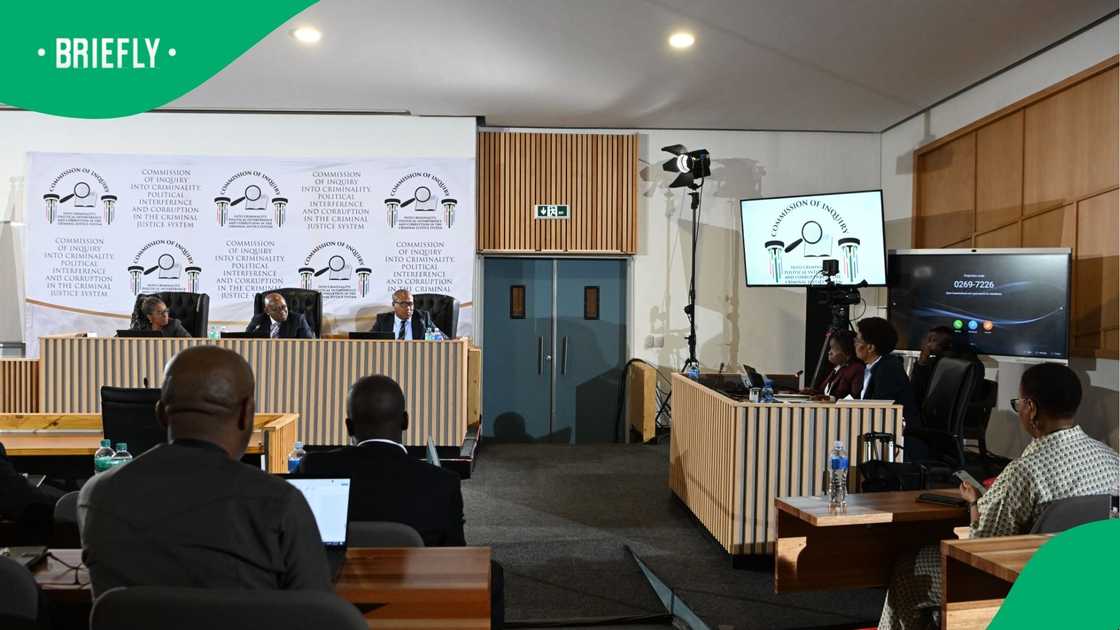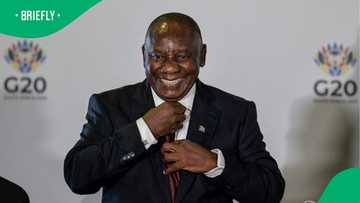Understanding the Legal Powers and Boundaries of SA Commissions of Inquiry
Advocate Kgalalelo Jennifer Matabane has been practising as an advocate since 2022, specialising in family law, such as divorce, Rule 58/43 applications, child maintenance, children's court matters, and domestic violence cases. Before becoming an advocate, Matabane worked as a maintenance officer for the Department of Justice, which further fueled her passion for helping those who were unable to advocate for themselves. Matabane operates independently and is not affiliated with any specific bar association.
The Madlanga Commission of Inquiry sits at the intersection of law, governance and public accountability. Its work has raised urgent questions about the extent of executive power in policing, the constitutional obligations of law enforcement, and the broader imperative of ensuring justice in a society struggling with corruption and organised crime.

Source: Original
This commentary examines the Commission’s proceedings and findings through the lens of South Africa’s Constitution, focusing on the balance between the Commission’s investigative powers and its limitations, and the societal consequences of its revelations.

Read also
A man listed South Africa’s highest-paying jobs that didn’t require matric, and Mzansi reacted with laughter
Constitutional framework and the rule of law
The Constitution of the Republic of South Africa, 1996, enshrines the rule of law as a founding value (section 1(c)) and guarantees accountability, responsiveness, and openness in government (section 1(d)). Sections 205–208 further prescribe the powers, functions, and duties of the South African Police Service (SAPS), mandating that policing must be conducted in accordance with the law, with the overarching duty to protect and secure the inhabitants of South Africa.
Against this backdrop, the Commission’s inquiry into the disbandment of the Political Killings Task Team (PKTT), the transfer of case dockets, and the alleged interference by political and business figures underscores a potential breach of these constitutional obligations. Testimony revealed that executive decisions may have undermined active investigations into politically motivated killings and corruption, thereby frustrating the fulfilment of section 205(3)’s mandate to “prevent, combat and investigate crime.”
The Commission’s powers and limits
Commissions of inquiry, while powerful fact-finding mechanisms, are limited in that they cannot make binding rulings or criminal convictions. Their function is to uncover the truth, provide recommendations, and ensure transparency. The Madlanga Commission exemplifies both the strength and weakness of such bodies.

Read also
Herman Mashaba urges Joburg voters to back ActionSA in fight against illegal immigrants, SA divided
It created a public record of Mkhwanazi’s testimony, exposing alleged executive interference, collusion between state actors and private individuals, and failures in prosecutorial coordination. It also illuminated risks faced by investigators and whistleblowers, reminding society of the dangers of impunity. Its recommendations, however persuasive, are not self-executing. The Commission relies on political will and prosecutorial action to give effect to its findings. This raises constitutional concerns about the separation of powers and whether the executive can be trusted to implement corrective measures when implicated in wrongdoing.
Accountability and governance concerns
The testimony before the Commission disclosed serious concerns regarding executive interference and institutional stability. Allegations that Minister Mchunu was improperly influenced by individuals with political affiliations suggest an intrusion of executive authority into operational policing functions, a development that stands in direct conflict with constitutional and statutory safeguards.
Furthermore, the disbandment of the Political Killings Task Team, coupled with the unexplained transfer of numerous case dockets, signified a clear erosion of institutional integrity and materially impaired the state’s capacity to investigate and prosecute politically motivated crimes.
Equally disquieting were the implications for prosecutorial independence and public confidence in the criminal justice system. The National Prosecuting Authority’s exclusion from crucial decision-making processes raised legitimate concerns about whether its constitutional autonomy, as guaranteed by section 179(4) of the Constitution, was being respected.
In addition, the murder and intimidation of witnesses, together with apparent interference in investigative processes, have substantially eroded public trust in law enforcement. These developments underscore systemic vulnerabilities within governance structures and highlight the pressing necessity of reaffirming accountability, prosecutorial independence, and the rule of law.

Read also
Student creates South Africa’s 1st service delivery app to revolutionise municipal accountability

Source: Getty Images
Societal implications
The Commission’s work resonates far beyond the confines of law and procedure. Political killings strike at the heart of democracy by silencing dissent and intimidating communities. When such killings are allegedly facilitated or covered up by state structures, the constitutional promise of equality, dignity, and security of the person (sections 9, 10, and 12) is gravely undermined.
Furthermore, the revelations highlight the dangerous nexus between politics, business, and crime, a phenomenon that entrenches inequality and impedes development. In this way, the Commission has helped to expose systemic risks to South Africa’s democratic project.
The way forward
The Madlanga Commission has revealed deep structural and political obstacles to accountability within the SAPS and related institutions. While the Commission itself cannot enforce its findings, its work provides an essential evidentiary and moral basis for reform. It underscores the urgent need to protect whistleblowers and investigators, to enact statutory measures that limit executive interference in policing, and to strengthen the divide between political office-bearers and operational decision-making.
Equally, it highlights the importance of establishing an independent monitoring mechanism to ensure that its recommendations are implemented, thereby reinforcing the rule of law and restoring constitutional accountability.
Ultimately, the Commission’s contribution is not only legal but societal: it forces the nation to confront how fragile the rule of law becomes when political expediency eclipses constitutional duty.
3 More stories about the Madlanga Commission
- Briefly News also reported that Major-General Petronella Margaretha van Rooyen testified at the Madlanga Commission of Inquiry.
- Suspended Police Minister Senzo Mchunu said he is not bothered by what has come to light at the Madlanga Commission.
- Justice Mbuyiseli Madlanga asked the National Police Commissioner whether he would defy an instruction from the Minister of Police.
Disclaimer: The views and opinions expressed here are those of the author and do not necessarily reflect the official policy or position of Briefly News.
PAY ATTENTION: Follow Briefly News on Twitter and never miss the hottest topics! Find us at @brieflyza!
Source: Briefly News

Justin Williams (Editorial Assistant) Justin Williams joined Briefly News in 2024. He is currently the Opinion Editor and a Current Affairs Writer. He completed his Bachelor of Arts (BA) degree in Film & Multimedia Production and English Literary Studies from the University of Cape Town in 2024. Justin is a former writer and chief editor at Right for Education Africa: South African chapter. Contact Justin at justin.williams@briefly.co.za

Kgalalelo Jennifer Matabane (Advocate) Advocate Kgalalelo Jennifer Matabane has been practising as an advocate since 2022, specialising in family law, such as divorce, Rule 58/43 applications, child maintenance, children's court matters, and domestic violence cases. Before becoming an advocate, Matabane worked as a maintenance officer for the Department of Justice, which further fueled her passion for helping those who were unable to advocate for themselves. Matabane operates independently and is not affiliated with any specific bar association.

